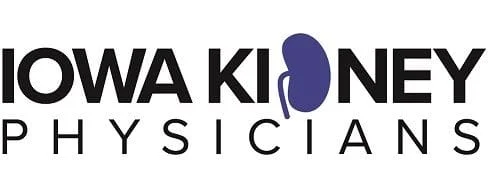Electrolytes are minerals in our body that are essential for key bodily functions. Chances are good that you’ve heard about waters or powders that contain electrolytes, which help to replenish electrolyte levels when they’ve been depleted by sweating, illness, or dehydration. But what causes an electrolyte disorder? Know the signs of an electrolyte disorder and how your Des Moines, IA, nephrologists will handle this issue.
What causes an electrolyte disorder?
An electrolyte disorder is the same thing as an electrolyte imbalance and there are quite a few things that can lead to these imbalances including:
- Extreme fluid loss due to vomiting, diarrhea, sweating, or fever
- Alcoholism
- Excessive heat
- Certain medications such as laxatives and diuretics
What are the warning signs?
The signs of an electrolyte disorder can be rather severe and scary and can include a wide range of symptoms depending on which minerals are imbalanced within the body. Some symptoms include:
- Rapid heart rate
- Sudden sweating
- Irregular heartbeat
- Fatigue
- Confusion
- Dizziness
- Diarrhea
- Nausea or vomiting
- Cramping
- Headaches
- Muscle weakness
- Numbness and tingling
It’s important that you don’t ignore these symptoms. Call your doctor right away.
How is an electrolyte disorder treated?
If your Des Moines, IA, nephrologists suspect an electrolyte imbalance, they will run urine and blood tests to determine which electrolytes are imbalanced. Sometimes electrolyte imbalances are due to kidney problems, which means that we will need to take a closer look at the health and function of your kidneys through imaging tests such as an ultrasound.
Very mild electrolyte imbalances can be improved through increased fluids and dietary changes while more serious electrolyte imbalances will require IV fluids and possible hospitalization.
How are electrolyte problems related to kidney disease?
Our kidneys play a crucial role in maintaining healthy electrolyte levels, so if you have kidney disease or abnormal kidney function then you may be at risk for electrolyte imbalances, more specifically low sodium (hyponatremia) or high sodium (hypernatremia). Both imbalances are best treated with IV fluids.
Your expert team of nephrologists of Iowa Kidney Physicians provides treatment and care to patients living in Des Moines, IA. If you are experiencing signs of an electrolyte disorder, call us at (515) 336-6557, or (515) 243-3161.
